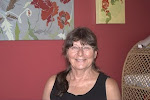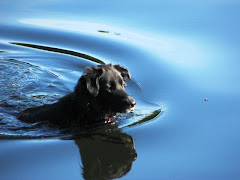We were talking last evening about Obama, the orator. Orators stand out in our world because they are so rare. How many can you count in your life time? Martin Luther King? Bishop Desmond Tutu? Pierre Elliot Trudeau? Winston Churchill? I am hard pressed to think of others offhand.
But when I was in Africa, I attended many many formal opening and closing ceremonies, all marked by speech after speech after speech. Some of those very long speeches were soporific, but not as many as you would imagine.
When I travel I also attend more church services than I usually do, and the pastors I listened to in the African countries, Kenya and Uganda, and on the Bahamian island of Eleuthera were all orators who could grab their listeners by the throat and hold their attention.
The best speaker I have ever heard was an old man who was Secretary General of the All Africa Teachers' Organization. His name was Tom Bediako. He was well-loved and the teachers called him Uncle Tom ... in a complimentary way.
Tom would listen to all the speakers who spoke before he did and then he would extemporaneously create his own speech by weaving together the most important points of all the speeches that had gone before. It was magical to listen to him. Everyone in the room was reminded of what had been said that day. And every speaker knew that his words had made an impression, not once, but twice.
Africans have deep roots in an oral tradition and there are still many uneducated Africans who rely on the spoken word, on story, to learn what is going on. Even if they can read, the printed word is often not available or very expensive. As a result, oratory flourishes there, just as it did in the American South among the slaves who were forbidden to read.
Barack Obama comes from a rich tradition of oratory and he uses it skilfully to express the ideas gleaned from his personal education, erudition and principles.
Subscribe to:
Post Comments (Atom)




No comments:
Post a Comment